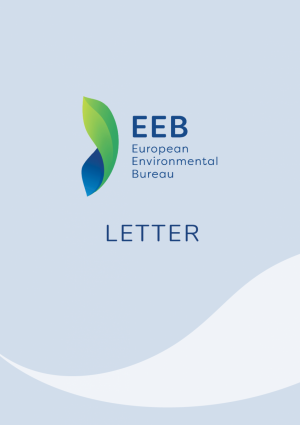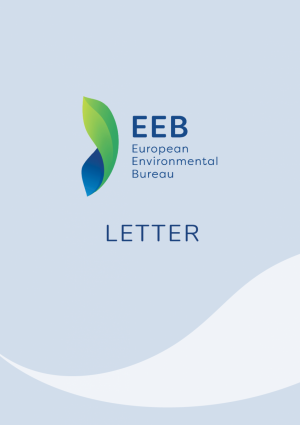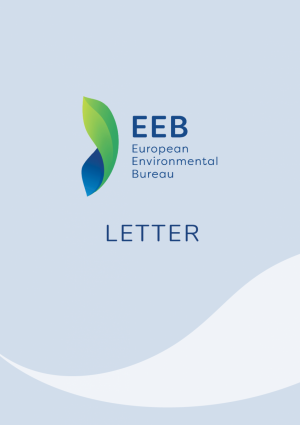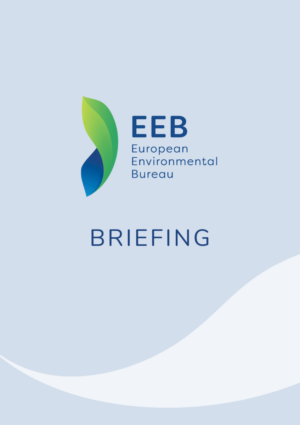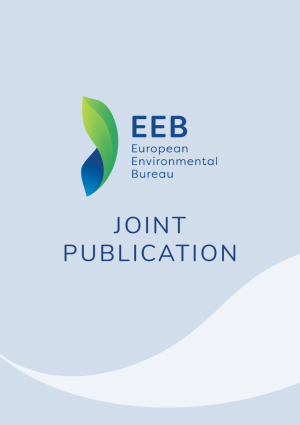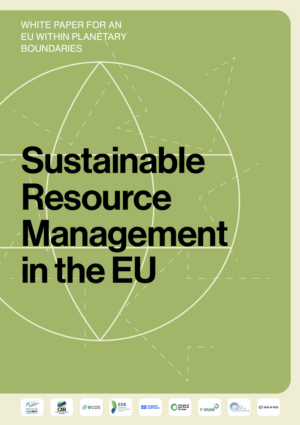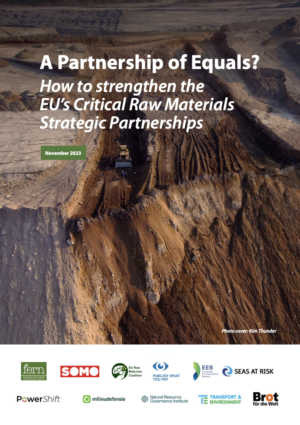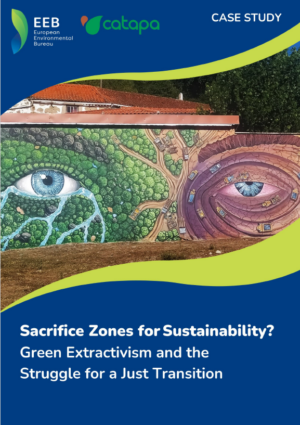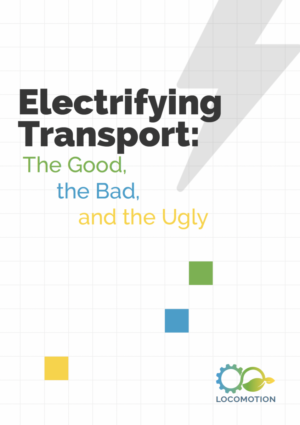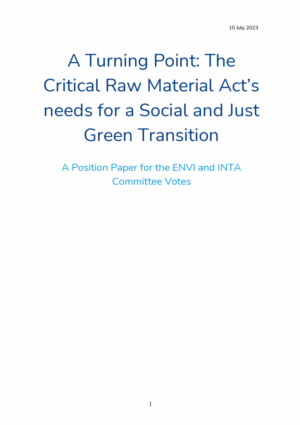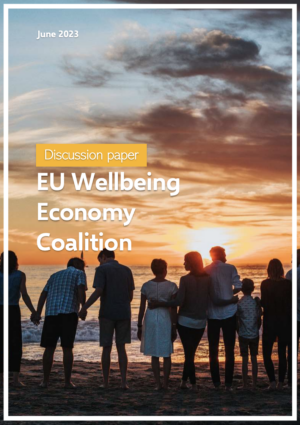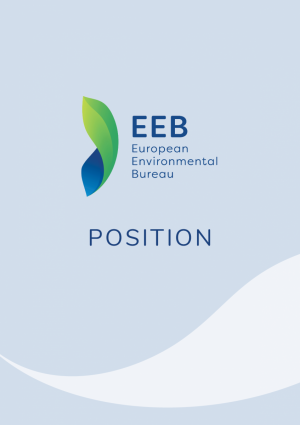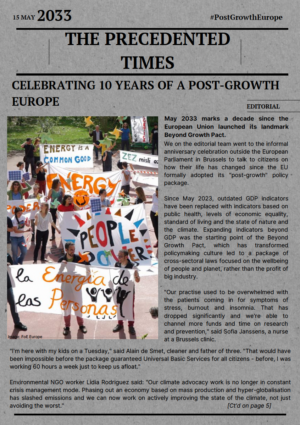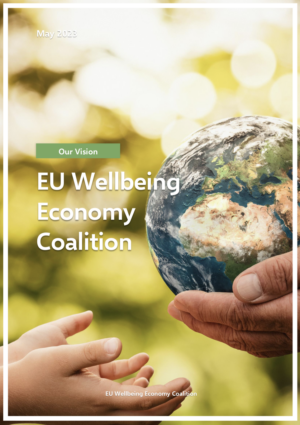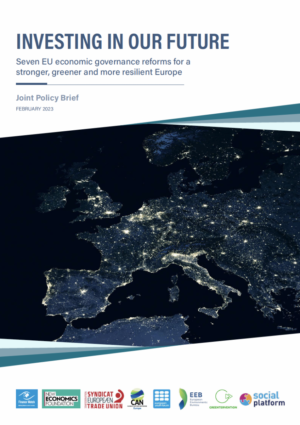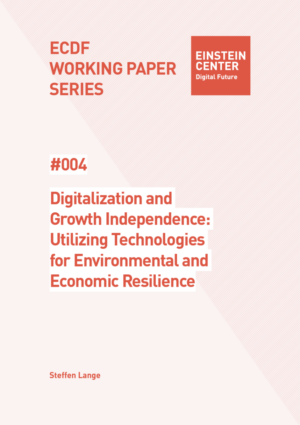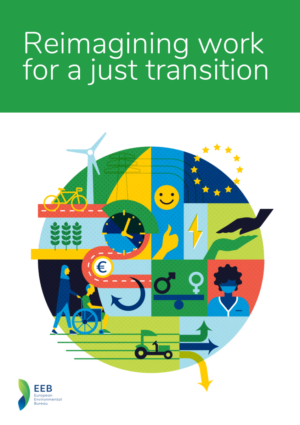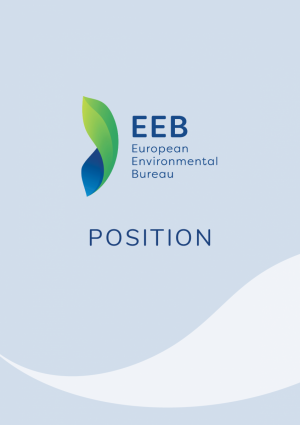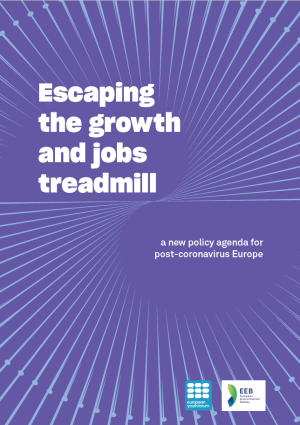Failure to adequately price pollution, emissions and resource-use is a key factor in the mounting environmental and social challenges of our time. Green fiscal reform can play a critical role in fixing the way public money is collected and used to transition to an inclusive green economy.
Green fiscal reform is a key policy tool to reach our climate and circular economy goals. It encompasses applying the polluter pays principle, aligning public expenditures with environmental goals and raising revenues to create fiscal space for green investment and broader tax shifts (e.g. from taxing labour to resource-use and pollution).
Despite its great potential, taxation is still a largely unexploited instrument in the environmental policy toolbox as concrete green fiscal action is still very limited and uncoordinated across the EU.
Making fiscal policy work for the green transition
Fiscal policies across the EU are currently not fit to tackle the complex socio-economic and environmental challenges we are facing. This slows down the green transition and increases overall costs while false price signals incentivise pollution, inefficient resource-use and the erosion of natural capital.
- EU Member States collect €5.6 trillion in taxes every year. Only 5.9% of these taxes come from environmental taxes (covering all uses of natural resources, pollution and GHGs emissions).
- On average, Member States derive the majority (51.7%) of their tax revenue from labour (through income and payroll taxes and social security contributions). These are among the most economically distortive taxes and incentivise companies to minimise the use of human capacities, even if this means using more materials and fossil fuels.
- At the same time, resource use goes relatively tax free, if not subsidised. Member States subsidise fossil fuels with €50 billion per year and 15 Member States allocate more subsidies to fossil fuels than to renewable energy.
The EEB promotes the application of environmental fiscal reform to ensure a just transition to an inclusive green economy and enhance the effectiveness and fairness of public spending. By means of green and circular taxes, removal of environmentally harmful subsidies, and other economic instruments, we aim at increasing the price of pollution and environmental damage, correcting market distortions and bringing consumption in line with planetary boundaries.
Green and just tax-shift
A fairer tax system and more responsible public spending can discourage harmful behaviour, from pollution and wasteful use of resources to GHGs emissions and other exploitative practices. But this only tells half the story. The EEB believes that it is necessary to shift the tax burden from labour to pollution and resource-use in combination with a more equitable redistribution of revenues.
The EEB calls on EU institutions and national governments to genuinely commit to the environmental tax reforms needed to turn the polluter pays principle into a concrete reality and tackle the climate and environmental crises.
While tax systems are often proclaimed as gender-neutral they can perpetuate systemic inequalities in unpaid care work, employment rates, pension, income, poverty and wealth. For example, studies have shown that, when designed without due attention to equity and gender perspectives, some economic instruments, such as taxes on energy, present a higher burden for women, due to their higher poverty risk, especially among migrant communities or single mothers. Hence, the tax reform process can and must be done in a socially equitable and gender-just way. Adequate planning for the use of the revenues is crucial to design effective and just measures that address environmental issues while leaving no one behind.
A fiscal framework for people and nature
To achieve a just transition, the EU needs massive and coordinated public investment far beyond the constraints of the Stability and Growth Pact (SGP). Using the general escape clause does not address the fundamentally wrong direction that the SGP is pushing us towards. Fiscal policy should be an enabler of a just transition towards a wellbeing economy, not the chain that holds economies back. An enhanced EU level budget alone will not be enough to meet these goals, national fiscal policy must be empowered too. We cannot repeat the mistakes made following the 2008-2009 economic recession and allow governments to attempt to balance budgets through austerity measures that undermine long-term sustainability.
The EEB is advocating for a deep reform of the EU fiscal rules. A new economic model is needed and this requires increased public investments and a reorientation of the framework towards EU agreed environmental, social and climate goals. A reformed rulebook must enable governments to conduct policies and unleash investments to transition towards a wellbeing economy. Strong measures against corruption and misuse of public money are a precondition. We hence call for replacing (SGP) with a Wellbeing and Sustainability Pact in the long-term including replacing the arbitrary rules on government debt and deficit spending with more flexible fiscal standards that take into account the specific national contexts. This includes a new approach towards debt sustainability, taking into account national contexts and fiscal risks such as climate-related fiscal risks.
Sustainable Finance
Major private and public investments are urgently needed to transform the EU economy and deliver on climate, environmental and social sustainability goals. The EEB believes that setting the right framework is crucial to redirect capital and boost sustainable economic activities. The EU taxonomy is meant to be a science-based classification system, establishing a list of environmentally sustainable economic activities which could play an important role in helping the EU finance the green transition.
The development of the EU Taxonomy must lead to an ambitious Sustainable Finance framework rewarding truly sustainable activities and ensuring the substantial application of the ‘do no significant harm’ principle. However, to effectively counter greenwashing in financial markets and catalyse investments in the green transition, the Taxonomy must remain a robust science-based framework and not be swayed by political pressures and vested interests which undermine its credibility.
Demonstrating that investments ‘do no significant harm’ is a cornerstone of the EU Sustainable Finance framework. These criteria must be adequate to effectively prevent environmentally harmful activities and create additional incentives to undertake investments that are not merely lawful, but truly sustainable.
The EEB is engaged to secure ambition in the ongoing development and application of the Sustainable Finance Taxonomy. Including by ensuring that the ‘do no significant harm’ (DNSH) principle is adequately operationalised in all Taxonomy Delegated Acts and promoting compliance with this principle in the use of EU Funds.
The EEB monitors the development of the EU Taxonomy within a large civil society coalition and is also engaged across a number of technical working groups (Sectoral Teams) in the Platform for Sustainable Finance, the expert group advising the EU Commission.
The EEB has taken over the work carried out so far by Green Budget Europe, an expert platform promoting environmental fiscal reform through a network of eminent academics and influential economists. Check out this link if you’d like to join the EEB Green Budget Working Group.

